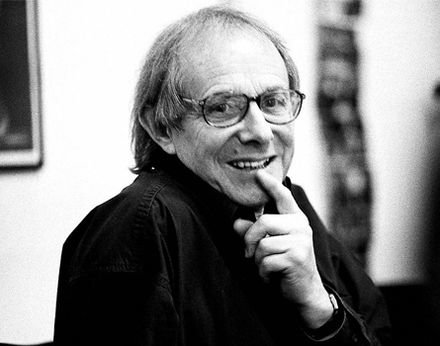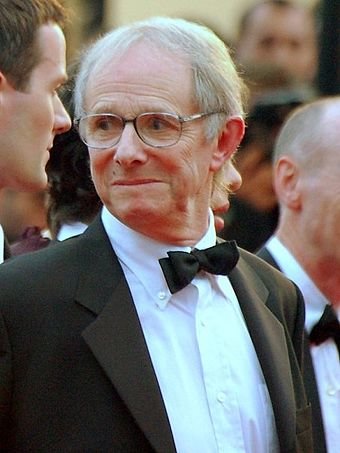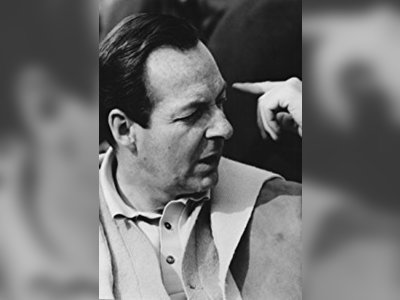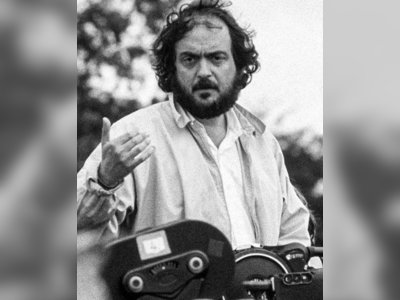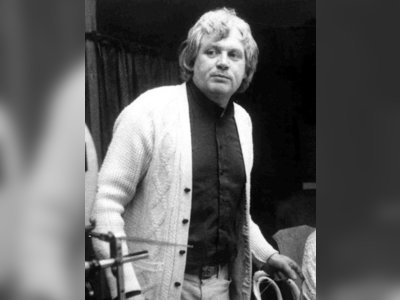British Heritage
Remember, Cherish, Learn.
beta
Ken Loach - The Lensman of the Left
Contribution to British Heritage.
Ken Loach, the renowned English filmmaker, has left an indelible mark on British heritage through his socially critical directing style and unwavering commitment to socialist ideals. Over the course of his prolific career, Loach has tackled various social issues plaguing British society, shedding light on matters like poverty, homelessness, and labor rights. His films have not only entertained but also provoked thought and sparked important discussions about the challenges faced by the working class and marginalized communities in the United Kingdom.
Born on 17th June 1936 in Nuneaton, Warwickshire, Ken Loach grew up to become a prolific filmmaker with a distinct and principled approach to his craft. His work serves as a testament to his dedication to shining a light on the struggles of ordinary people and giving a voice to those often overlooked by mainstream media. Throughout his career, Loach has fearlessly exposed social injustices and advocated for political change through the lens of his camera.
Loach's films have received widespread acclaim, and some of them, such as "Kes" (1969) and "Cathy Come Home" (1966), have been deemed among the greatest works of British cinema. Moreover, his success at prestigious international film festivals, particularly Cannes, has earned him a reputation as one of the most accomplished directors in the history of British filmmaking.
Ken Loach's contribution to British heritage is deeply rooted in his unyielding commitment to social realism and his portrayal of the struggles faced by the working class and disenfranchised communities. His films have become a significant part of the British cinematic landscape, reflecting the country's social, political, and economic realities. By shedding light on important issues, Loach has not only entertained audiences but also encouraged empathy and understanding for those facing adversity.
Loach's masterful storytelling, combined with his focus on personal relationships within the broader context of political situations, has resonated with audiences worldwide. His use of regional dialects in many of his films adds authenticity to the narratives and provides a unique representation of various British communities.
Ken Loach's success in the film industry is evident in his numerous accolades and awards. His films have been celebrated not only in the United Kingdom but also on the global stage, making him a prominent figure in world cinema. Loach's work has garnered him two prestigious Palme d'Or awards at the Cannes Film Festival, an honor bestowed upon only a select few filmmakers.
Despite facing challenges with some of his films due to political censorship and limited distribution, Loach's commitment to his craft and dedication to his principles have prevailed. His films have earned critical acclaim for their emotional depth, powerful storytelling, and profound social commentary.
Born Kenneth Charles Loach on 17th June 1936 in Nuneaton, Warwickshire, he attended King Edward VI Grammar School and later served in the Royal Air Force. Loach pursued his passion for drama and filmmaking, becoming a director for BBC Television, where he directed notable works such as "Cathy Come Home" and "Up the Junction," which portrayed working-class individuals grappling with various challenges.
Throughout his career, Loach's filmography has been marked by a thematic consistency centered on personal relationships, social struggles, and the pursuit of justice. He has addressed diverse subjects, from labor rights to the political troubles in Northern Ireland, capturing the essence of the human experience in each narrative.
Ken Loach's films have left an enduring impact on British heritage, promoting a deeper understanding of the issues faced by marginalized communities and inspiring social change. His unwavering dedication to portraying the realities of working-class life and his relentless pursuit of social justice through his art have cemented his place as one of Britain's most influential and cherished filmmakers.
Legacy
Born on 17th June 1936 in Nuneaton, Warwickshire, Ken Loach grew up to become a prolific filmmaker with a distinct and principled approach to his craft. His work serves as a testament to his dedication to shining a light on the struggles of ordinary people and giving a voice to those often overlooked by mainstream media. Throughout his career, Loach has fearlessly exposed social injustices and advocated for political change through the lens of his camera.
Loach's films have received widespread acclaim, and some of them, such as "Kes" (1969) and "Cathy Come Home" (1966), have been deemed among the greatest works of British cinema. Moreover, his success at prestigious international film festivals, particularly Cannes, has earned him a reputation as one of the most accomplished directors in the history of British filmmaking.
Contribution to British Heritage
Ken Loach's contribution to British heritage is deeply rooted in his unyielding commitment to social realism and his portrayal of the struggles faced by the working class and disenfranchised communities. His films have become a significant part of the British cinematic landscape, reflecting the country's social, political, and economic realities. By shedding light on important issues, Loach has not only entertained audiences but also encouraged empathy and understanding for those facing adversity.
Loach's masterful storytelling, combined with his focus on personal relationships within the broader context of political situations, has resonated with audiences worldwide. His use of regional dialects in many of his films adds authenticity to the narratives and provides a unique representation of various British communities.
Success
Ken Loach's success in the film industry is evident in his numerous accolades and awards. His films have been celebrated not only in the United Kingdom but also on the global stage, making him a prominent figure in world cinema. Loach's work has garnered him two prestigious Palme d'Or awards at the Cannes Film Festival, an honor bestowed upon only a select few filmmakers.
Despite facing challenges with some of his films due to political censorship and limited distribution, Loach's commitment to his craft and dedication to his principles have prevailed. His films have earned critical acclaim for their emotional depth, powerful storytelling, and profound social commentary.
General Information
Born Kenneth Charles Loach on 17th June 1936 in Nuneaton, Warwickshire, he attended King Edward VI Grammar School and later served in the Royal Air Force. Loach pursued his passion for drama and filmmaking, becoming a director for BBC Television, where he directed notable works such as "Cathy Come Home" and "Up the Junction," which portrayed working-class individuals grappling with various challenges.
Throughout his career, Loach's filmography has been marked by a thematic consistency centered on personal relationships, social struggles, and the pursuit of justice. He has addressed diverse subjects, from labor rights to the political troubles in Northern Ireland, capturing the essence of the human experience in each narrative.
Ken Loach's films have left an enduring impact on British heritage, promoting a deeper understanding of the issues faced by marginalized communities and inspiring social change. His unwavering dedication to portraying the realities of working-class life and his relentless pursuit of social justice through his art have cemented his place as one of Britain's most influential and cherished filmmakers.
- Ken Loachen.wikipedia.org
